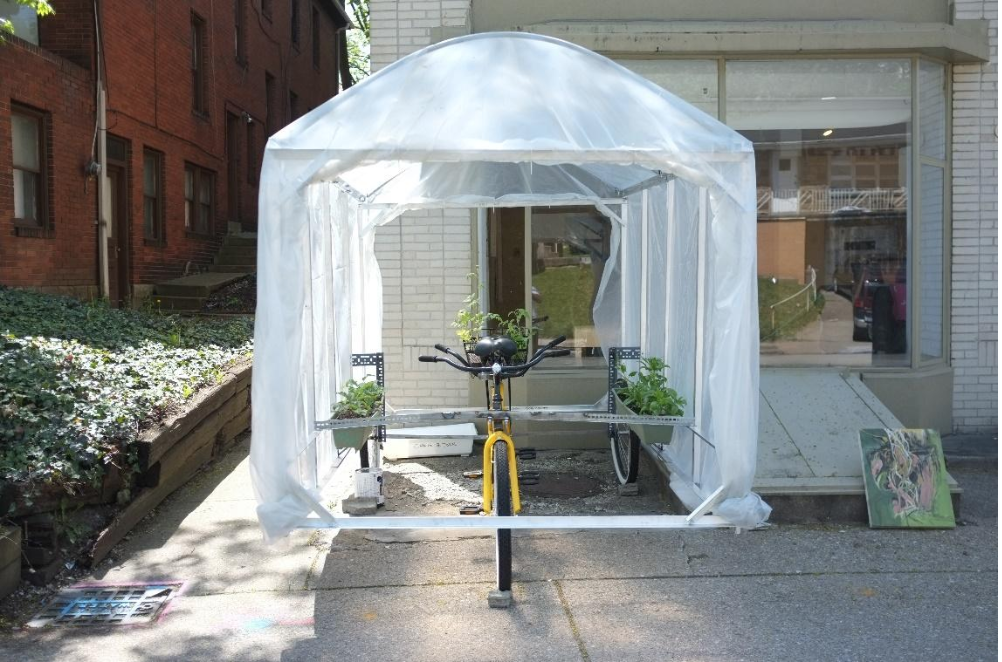Mobile Greenhouse Bike
Josh Archer, Chris Copeland (2016)Josh Archer and Chris Copeland write of their project Mobile Greenhouse Bike:
“The Mobile Greenhouse Bike is a collaborative artwork born out of the desire to make art about agriculture in urban spaces. With support from The Frank-Ratchye Studio for Creative Inquiry, we set out to construct a bike powered greenhouse that would challenge assumptions about the feasibility of DIY farming. Furthermore, we wanted to interrogate the lack of excitement around sustainable farming practices and eco-vehicles. With all this as the starting point of our inquiry, we set out to learn about the different processes of engineering, sculptural fabrication, and growing vegetables from seed.

Over the course of several months, the design of the bike moved through different iterations in relation to functionality and aesthetics. The decision to enclose the tandem bike in the center of the greenhouse structure was intended to enhance the absurdity of the vehicle, and further implicate ourselves in the growing process.

The final result of that year met some of our expectations but also showed us how much we had to learn. The vehicle’s ambitious size, originally designed to accommodate a variety of garden beds and space for the artists, became a hindrance on the bike’s mobility. The competing desires of form and function compromised some original visions of the vehicle. Dealing with materials like soil and water made us reconsider weight distribution on the greenhouse bike. Taking the project as far as we could, we exhibited the bike at The Frame Gallery on CMU, where a live audience engaged the idea of a mobile, human-powered greenhouse. Additionally, in and outside of the gallery, all of the food produced for the project was displayed.

Future iterations of The Mobile Greenhouse Bike will encompass an evolved version of the original vehicle design. Through guided tours in the greenhouse bike catered to specific organisms, places, and relationships, we will engage with the ecological and industrial history of Pittsburgh.”
Made possible with support from the Frank-Ratchye Fund for Art @ the Frontier.
